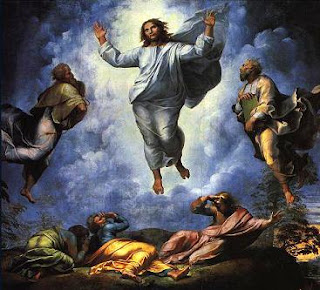Stay sober and alert. Your opponent, the Devil, is prowling like a roaring lion looking for someone to devour. Resist him, solid in your faith. 1 Peter 5:8-9
The Evil One's ways are insidious and terrifyingly subtle. After weeks of wreaking havoc in my life, I only finally caught him at it today.
If my mother is to be trusted (and I think she is), it has not been unnoticed that I have been uncharacteristically quiet on this blog. She threatened to stop reading if I didn't start writing more often. She was right; I have been lax about keeping this place up-to-date. Unfortunately, the discipline of writing about which I spoke when I first undertook this project, for some time, has been a burden more than a source of insight and consolation. I have found it difficult to find anything of substance to inspire me to lay pen to paper (or finger to keyboard, as the case may be). This malaise, however, was not characteristic of the blog alone. I could feel it creeping through most of the facets of my life. Bedtime became later and later, and getting up time responded accordingly. I often couldn't think of anything nice to say, and still felt it necessary to say something anyway. Temptations to a whole variety of sins were constant, and my constitution weak. Something was clearly amiss, but I hadn't really figured out what it was. "Keep your boundaries, seek balance in life, and find someone to talk to," I advised myself.*

It is said that to remove a wart, one must draw out the core. Treatments that don't do this will work for a while, but the wart will eventually return. So it is with a spiritual problem. Treatments that address only the surface will likely not be lasting. So it has been with me. Finally, today, it became clear what was happening and I feel like I can address the issue head on.
It began this way. After a very stressful meeting with a variety of people at the school, I was taken aside by a priest whose opinion matters a great deal to me. Among other things, he suggested that my personality was often off-putting to people, that I was intimidating to many, that I was disrespectful to some, and that I had perhaps irreparably damaged a number of relationships with certain people with whom I had believed myself to be making great progress. I was initially grateful for the frankness of the conversation, but undeniably hurt. Intellectually, I understood everything he had said and found at least some of it to be accurate. It was in this moment, though, that the Tempter found a crack through which he could mount a powerful assault. As I pondered this conversation, he whispered disastrous lies to me, and I bought them, hook, line, and sinker.
John Eldridge describes the various stages through which a man must progress and be initiated in order to truly become a man. He also acknowledges that much of this initiation must be done by God himself, because human fathers, like all of creation, still suffer the effects of original sin. A human father, however, plays a role in cultivating the seed bed in which God the father might plant and harvest. Unfortunately, many fathers these days are ill equipped to do even this with much skill. As a result, almost all men, to one degree or another, labor to know that they are good enough. Eldridge summarizes this entire phenomenon by proposing two questions a man asks himself: 1) Do I delight my father? 2) Do I have what it takes?
It is crucial for all men to receive an affirmative answer to these questions. Without such affirmation, a man is likely wander through life looking for any substitute that will, even for a brief moment, affirm him in his masculinity. For many men, this substitute takes the form of a desire to control and the carrying of a facade that a man presents to the world. This facade is often so convincing that the man believes it about himself. Thus, for a man, one of Satan's most wicked tricks is to slip in when the facade is cracked and to create a facade of his own. When something occurs to threaten the facade (like a frank conversation with someone), the man realizes that there is some part of himself that is not being entirely truthful. As a result, he casts about seeking some indication and validation of who he really is. The Accuser wastes no opportunity to suggest to the man the "truth" of who he is. As a result, a man who believes himself to be in control, self-possessed, and a gallant warrior for some cause is easily convinced that he is a loser, a weakling, a liar and a coward who cannot control himself, and who does not have what it takes. The second step of the Evil One's strategy is to then provide temptation to sins by which a man can affirm within himself the lies the Evil One has been telling. These sins become the mortar that holds the new edifice together, and without some practice in seeing these evil designs, a man will eventually have allowed Satan to establish a fortress within his soul. I had such a fortress once. Satan longs to reestablish it. Over the past few weeks, I allowed him to begin building.
So today, it finally occurred to me that I had allowed myself to be convinced that I was not beloved, and that I did not have what it takes. I had entered into a pattern of sinfulness that reaffirmed these beliefs. These things all came together on I90 between New Underwood and Rapid City as I returned from the ranch. Instead of going right to the Cathedral, I drove out to Piedmont, found Fr. Ray Diesch, and made a good confession. Tonight I prayed better than I have prayed in a long time. I feel fresh, alive, and happy. I am the beloved of my father. I do have what it takes.
St. Michael the Archangel, pray for me.
* I am currently without a Spiritual Director, and have been for some time, as Fr. Kroll who previously directed me has moved on to bigger and better things. This is a very bad situation for a priest to find himself in. I am without only because I have been consistently reassured by the Chancery that "the Bishop is working on bringing someone in to replace Fr. Kroll. Just be patient." The last few weeks of his tenure here were understandably hectic and certain things were to inevitably fall through the cracks. It appears that Fr. Kroll's replacement is one of them.




























